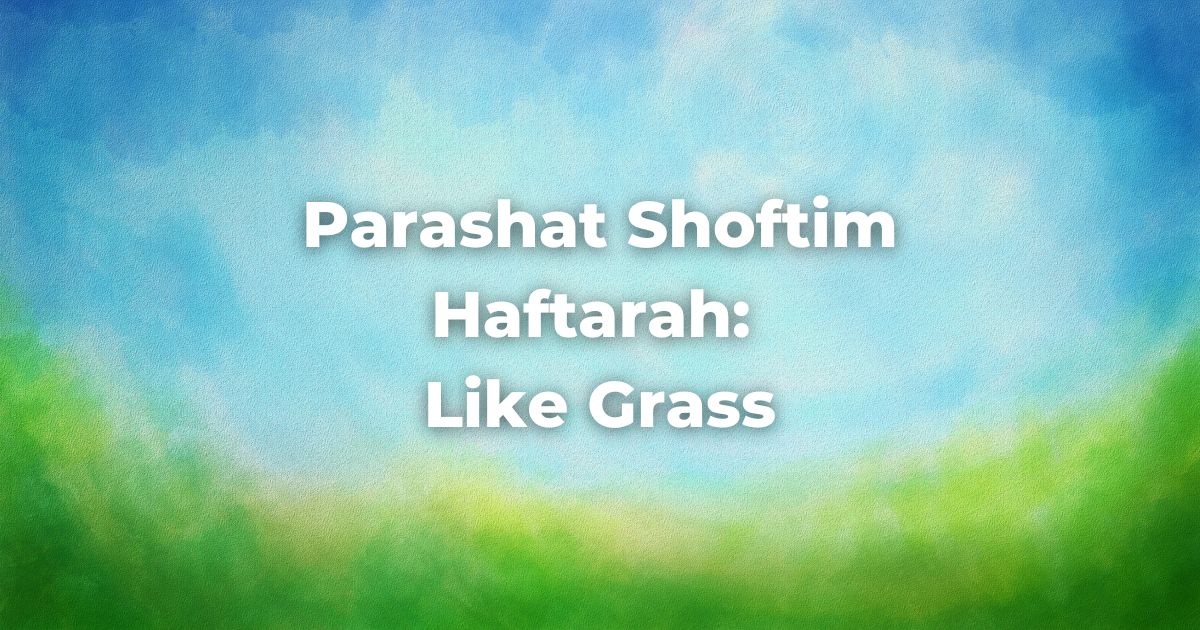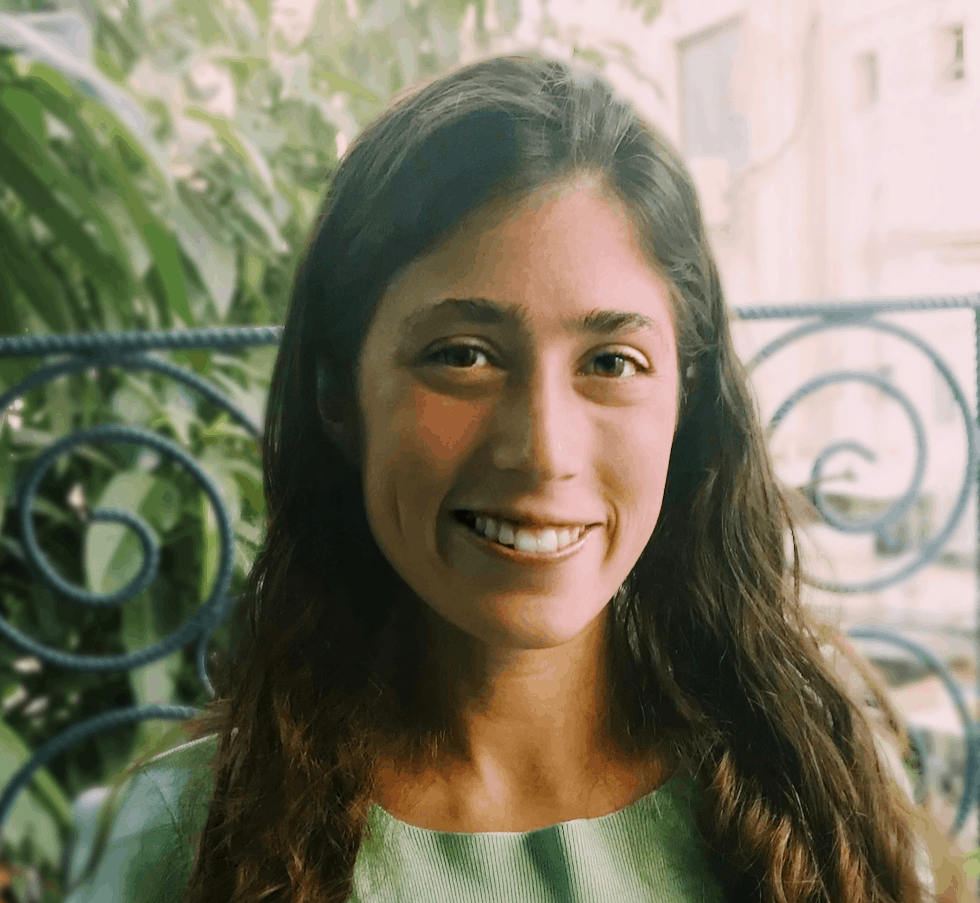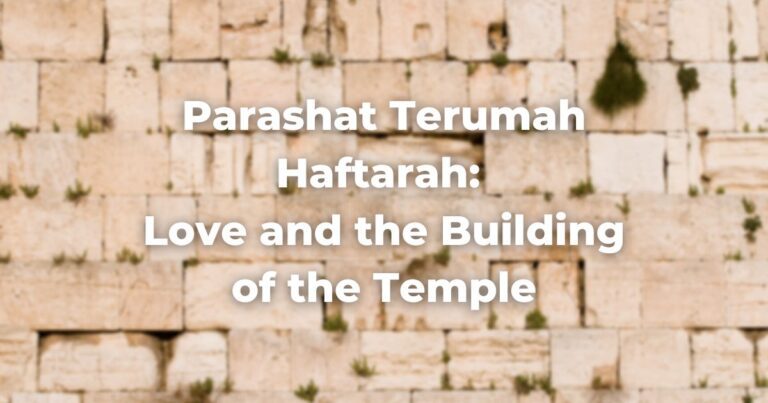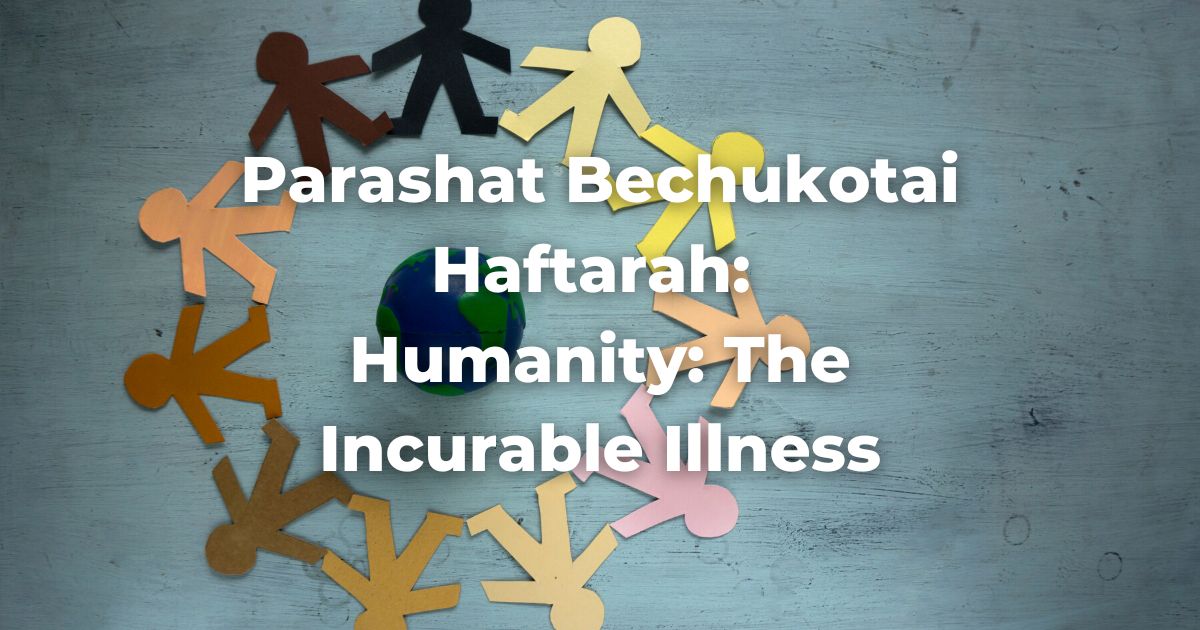As a people, we define ourselves by our covenant, by the terms of our relationship with God.
Chosenness By God
We are the people whom God took out of Egypt. We are the people to whom God is giving the land that God will show us. We are the people who are commanded to remember the Sabbath day and keep it holy. We are the people who observe the holidays, rites, and rituals that celebrate us as separate and unique in our relationship with God.
Our haftarah portion begins with God defining Godself in relation to us.
We read, “I, I, am the one who comforts you (Isaiah 51:12).” At this point in our history, we have already been exiled and are now beginning our return. We have already spoken Lamentations, cried out that “there is no one to comfort” us.
Here, God answers us, replying that not only will God comfort us, but also that God’s self-definition is as our comforter. God is in relationship with us not as lawgiver or creator, but as source of comfort.
It is important for God to define Godself to us at this point.
A major reason that we went into exile is that we did not know God. We pursued other gods, worshiped the products of our hands. So, God punished us. Now God is providing us with an easy way to return to God, to find our way back to truth amidst falsehoods.
We can identify God as God because of God’s ability to comfort us.
The verse begins with repetition. We read, “I, I (anokhi, anokhi)” The rest of the chapter contains similar repetition of the first word of phrases, calling emphasis to the repeated word. In this case, it also serves to define God.
We can read the first anokhii, the first “I,” as God’s existence in its totality. God is the “I,” the first speaker, alone and perfect. But the verse continues and God offers another “I,” another self-definition. God is also “the one who comforts” us.
In this way, God enters back into a covenantal relationship with us. God does hold the power. God is not dependent on us for existence. But God chooses to be in a relationship with us, chooses to be our comforter, chooses to self-define as our comforter.
The verse continues, “Who are you that you should fear, man who dies and the son of man who is no more than grass?”
We Are Like Grass
God has just identified Godself as our comforter.
These next words out of God’s mouth do not seem comforting. God asks us to identify and define ourselves and then goes on to do it for us. We are mortals, made to expire, a passing phenomenon. We are like grass, growing and dying and growing again.
Given that this is the case, we have no standing to fear. God will comfort us and we will die and neither is a cause for fear. Rather, we are given a matter-of-fact explanation of how life works. God comforts us by letting us know who we are and who we can grow to be.
We are the comforted people, the people who can face death, who can accept the consequences of our actions, and still uphold our people’s covenant.
See more: Parashat Shoftim
Originally posted as part of the Conservative Yeshiva at the Fuchsberg Jerusalem Center’s Torah Sparks. Support TorahRefers to the first five books of the Hebrew Bible, the Tanakh, also called the Five Books of Moses, Pentateuch or the Hebrew equivalent, Humash. This is also called the Written Torah. The term may also refer to teachings that expound on Jewish tradition. Read more learning from the Fuchsberg Jerusalem Center/Conservative Yeshiva for leaders and seekers around the world here.
Authors
-

Bex Stern Rosenblatt is the Conservative Yeshiva’s Faculty-in-Residence for the Mid-Atlantic Region of the United States, teaching Tanach, using the techniques of close-reading, theater, feminist readings, and traditional commentators. Bex also directs the CY’s recruitment efforts in North America. After finishing her B.A. in History and German at Williams College, Bex received a Fulbright Grant to Austria. She later earned an M.A. in TanakhAn acronym for the name of the Hebrew Bible: Torah, Neviim, and Ketuvim. Read more from Bar Ilan University and has also studied at the Conservative Yeshiva and Bina Jerusalem. Bex is the founder of HavrutaA study partner. A hevruta is more than just a ‘study buddy’ it is a serious and personal relationship between colleagues. Also spelled: Havruta Read more Tel Aviv, an organization that facilitates guided pair-learning of the Tanakh.
View all posts -



The Fuchsberg Jerusalem Center (FJC) is a home in the heart of Jerusalem where leaders and seekers can find an authentic place in Jewish tradition to call their own. FJC offers opportunities to study, pray and explore within an egalitarian and inclusive setting, creating multiple pathways for finding personal and communal meaning.
View all posts






